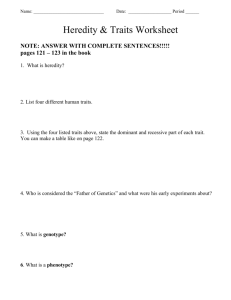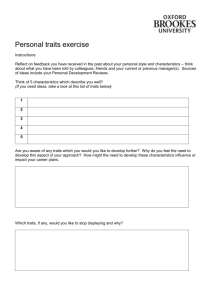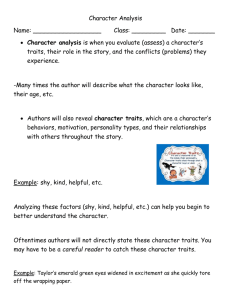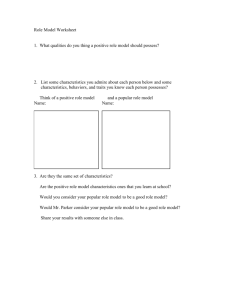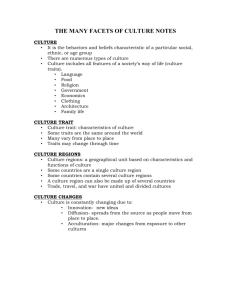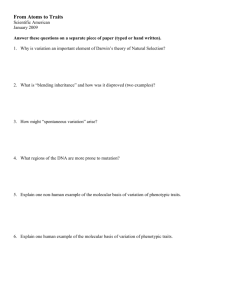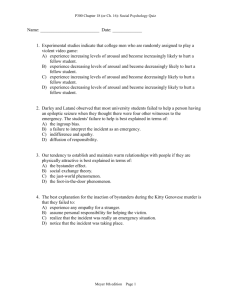PSY101 EXAM 5 Review 4 perspectives for personality know what
advertisement
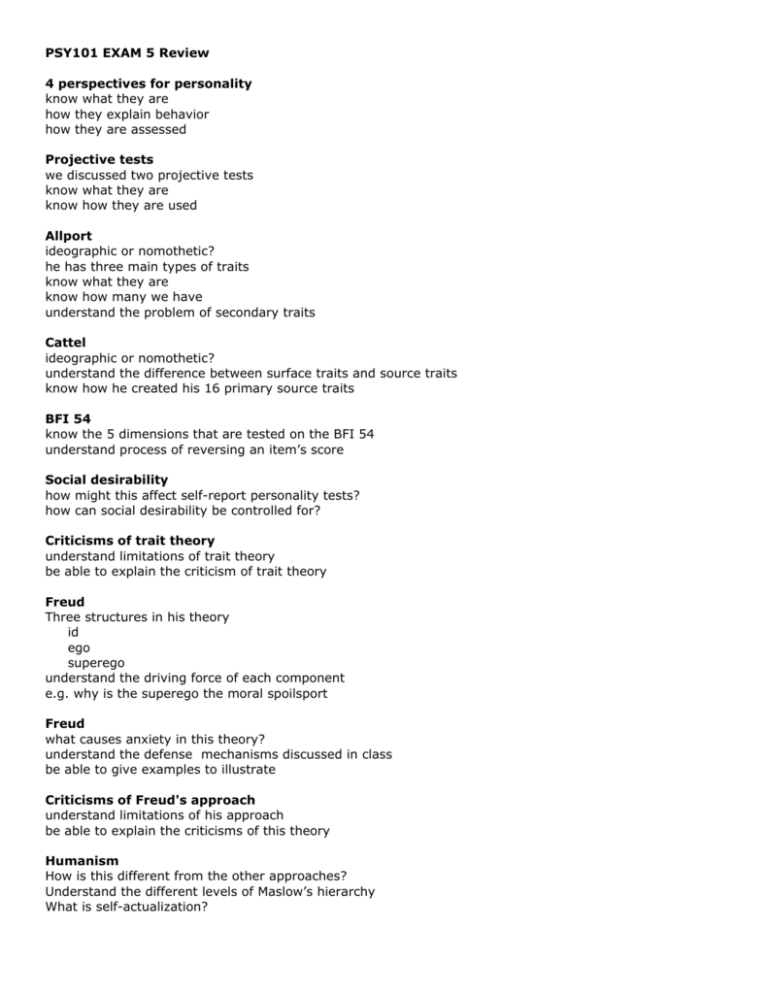
PSY101 EXAM 5 Review 4 perspectives for personality know what they are how they explain behavior how they are assessed Projective tests we discussed two projective tests know what they are know how they are used Allport ideographic or nomothetic? he has three main types of traits know what they are know how many we have understand the problem of secondary traits Cattel ideographic or nomothetic? understand the difference between surface traits and source traits know how he created his 16 primary source traits BFI 54 know the 5 dimensions that are tested on the BFI 54 understand process of reversing an item’s score Social desirability how might this affect self-report personality tests? how can social desirability be controlled for? Criticisms of trait theory understand limitations of trait theory be able to explain the criticism of trait theory Freud Three structures in his theory id ego superego understand the driving force of each component e.g. why is the superego the moral spoilsport Freud what causes anxiety in this theory? understand the defense mechanisms discussed in class be able to give examples to illustrate Criticisms of Freud's approach understand limitations of his approach be able to explain the criticisms of this theory Humanism How is this different from the other approaches? Understand the different levels of Maslow’s hierarchy What is self-actualization? Socio-cognitive How is this different from the other approaches? What is Bandura’s self system? What is self efficacy? How does self-efficacy affect personality? Attributions understand difference between dispositional and situational attributions for person’s behavior be able to recognize and generate examples of each what factors that influence whether we make dispositional attributions What is the fundamental attribution error What is false consensus bias? What is the illusion o control? Be able to recognize and generate examples of each of the above Groups influence Social facilitation Why, and how, is performance affected by the presence of on lookers? Social loafing Why, and how, is performance affected when working as a group? Deindividuation What are the typical effects of deindividuation? What about in the ‘black room” study? Group polarization Why, and under what circumstances, do attitudes of an isolated group become more extreme over time? Be able to recognize and generate examples of each of the above Conformity What is conformity? What is the difference bewteen normative social influence and informational social influence? Be able to recognize and generate examples of each. Sherif’s study (judgements of the autokinetic effect) what was done? normative or informational social influence? How do we know? Asch’s study What was done? normative or informational social influence? How do we know? What factors influence conformity in studies like Asch’s? Compliance What is the foot in the door technique? What is the door in the face technique? Be able to recognize and generate examples of both the above Obedience Understand the procedure in Milgram’s study Who was the participant (teacher, learner, experimenter) What was measured? When were shocks delivered? when did the participant believe the shocks were delivered? How did the experimenter respond when participants wanted to stop? What percentage of participants were fully obedient Why were people obedient in this study?


